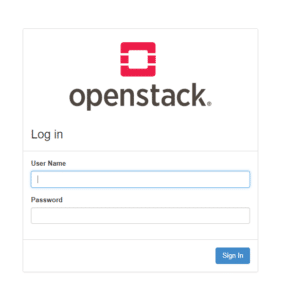
Radosgw needs the identity service which fails due to the mysql failure. It's head and should better than any OpenStack Installer I have used (at work) so far but it's a bitĭepressing that something is now broken in the mysql charm deployment which fails all of theĭependent OpenStack charms like keystone, cinder etc.

I have been trying now your really excellent tool for three week with no luck. Some streamlining here of the bug report process would be helpful. Have format (.xz) that Git refuses! The when you try to convert it the root ownerships cause The instruction to run sosreport should advise that you need to be root and the file prodcued.If you cannot access them please let me know and I try to see how I can get them added I have tried now to add the conjure-up.log as tar file and the SOSREPORT as tar.gz file.Machined is HP EliteBook 8560w with Intel Corei5 ( Two Cores + 4 Logical CPU)ġ6 GB Ram and 400 GB Industrial Grade SSDĬopying logs and sos report Apologies for clumsy attempts to create my first bug report. Have seen almost all other charms succeed, except since the mysqlĭatabase fails, most openstack services cannot work as they need the mysql to be successfully deployed. "Services not running that should be: mysql" The percona-cluster #259 mysql charm fails to deploy and ends in error state. Sudo lxd init (applied defaults and ensured IPV6 is not in use) Main Symptoms
#Conjure up openstack default login install
Sudo snap install conjure-up -classic Additional Information Please outline what commands were run to install and execute conjure-up: Commands ranĭefault options for all juju charm related configurations. Openstack with novaLXD What provider (aws, maas, localhost, etc)? The resulting output file can be attached to this issue.

Here (with limited skills) I tried to convert the non-accepted *.xz file to a *-gz file: The SOSREPORT makes a format which this git tool calims it does not support The authenticity of host '10.99.0.7 (10.99.0.7)' can't be established.ĮCDSA key fingerprint is SHA256:BGh/0LipzF3IgfaHwwKl2gl45uy9h3ctS5w/h469Om4.CG: Having issues here. Now you can do the ssh connection $: ssh There you find yours instances created via Openstack, again $: lxc exec instance-00000005 - bashĪnd as last step is edit the ssh_config file $: nano /etc/ssh/ssh_configĪnd uncomment the following lines as reports the picture Now run: $: lxc exec juju-d30ce2-13 there run $: lxc list Locate the name used from lxc for that IP (10.0.8.85). Now you need to list the containers created with lxc In my case the machine is 13 and its own IP addr. Look for the container dedicated to nova-compute,

On the machine where you've installed Openstack via conjure check the status of juju environment $: juju status Lets start from this situation, assign a floating IP Started Execute cloud user/final scripts.

cloud-init: 00:04:04,084 - cc_final_message.py: Used fallback datasource cloud-init: ci-info: no authorized ssh keys fingerprints found for user ubuntu. Ub16test xenial-lxd 10.99.0.14 m1.medium - Active nova None Running 34 minutes Ub14 trusty-lxd 10.99.0.15 m1.small - Active nova None Running 30 minutes Please try again later.", and tried ssh to return "ssh: connect to host 10.99.0.14 port 22: No route to host" After conjure-up openstack installed, create instance with default 2 images (trusty-lxd & xenial-lxd), but the instance console said "console is currently unavailable.


 0 kommentar(er)
0 kommentar(er)
